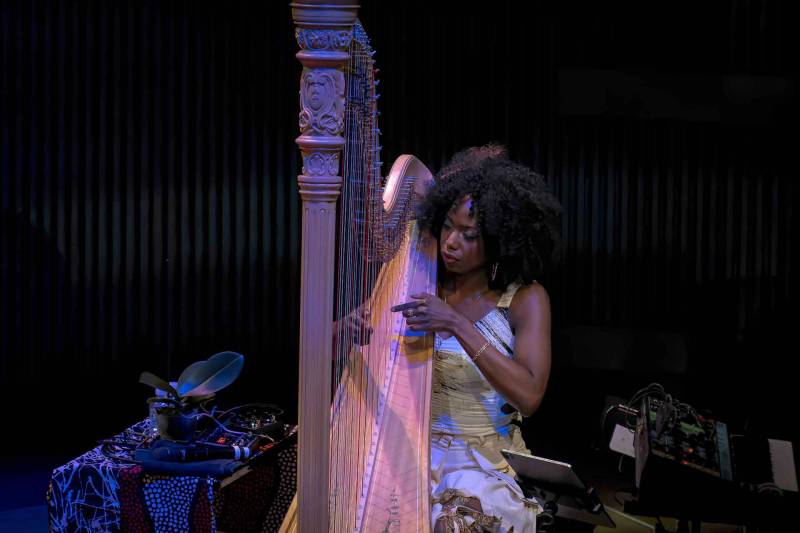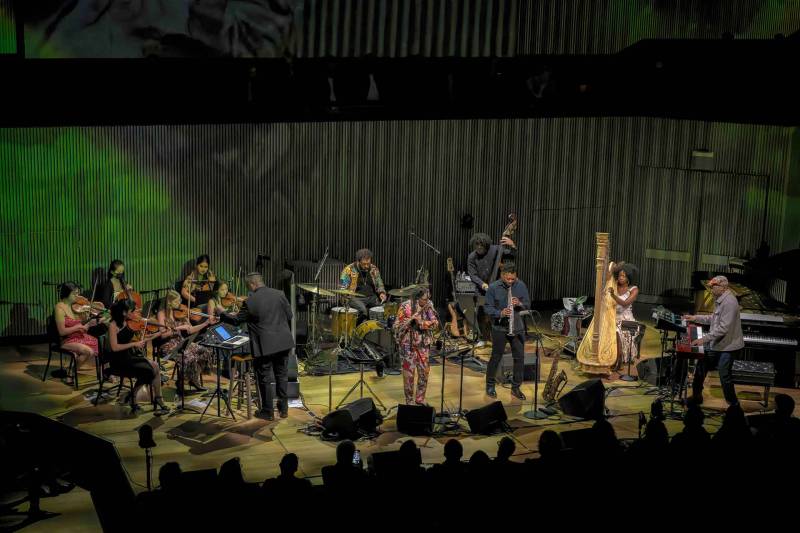
I had started to worry about the term “spiritual jazz.”
For the past six or seven years, it has become divorced from its radical roots to become the new Putumayo Music — a hip, vaguely “exotic” sound for well-to-do middle-aged white people to dabble in its aesthetics in order to feel sophisticated. It is no longer the social and political undercurrent of “Alabama,” “Space is the Place” or “Colors,” but playlist wallpaper. A few years ago, when I was in one of those lifestyle boutiques on Valencia Street — you know the kind, with candles, bespoke jewelry and a single rack of long dresses — and heard Alice Coltrane’s Journey in Satchidananda, I knew something was amiss culturally, like something reverent was being stolen.
Thankfully, Brandee Younger came to the SFJAZZ Center this past weekend to take it back.

For her program dedicated to the music of Alice Coltrane, Younger brought players closely connected to the music’s lineage. Nicole Mitchell, founder of the Black Earth Ensemble and former chair of the Association for the Advancement of Creative Musicians, played flute. On drums was Makaya McCraven, whose father played with Archie Shepp. On saxophone, well, you can’t do much better than Ravi Coltrane, the son of John and Alice Coltrane.
But it was Younger’s total immersion in the music, and commitment to honoring it deeply and properly, that elevated the program from surface-level tribute to sacred ritual. From lesser-known songs like set opener “Rama Rama” to eternal compositions like “Turiya & Ramakrishna,” Younger played solos that dug probingly into Coltrane’s modal chord figures and prodded the band to moments of transcendental alchemy.

